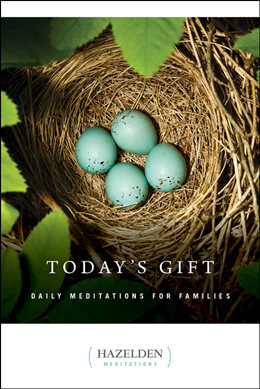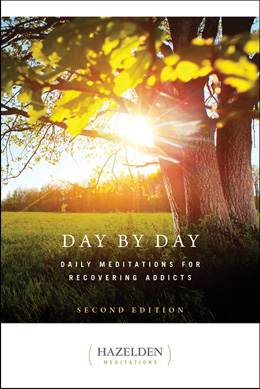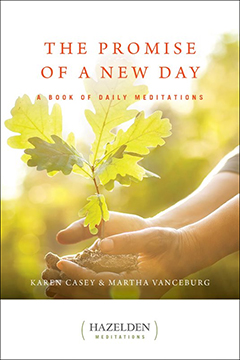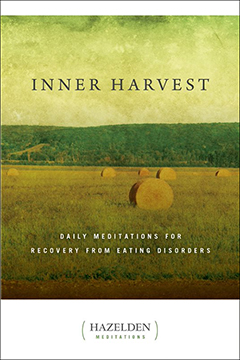by Mark Hubbard, for LifeLube
It’s sometimes hard to describe what we HIV/AIDS advocates do. Over the years, when I submitted a bio or printed home-made business cards, I described myself as an “independent educator, advocate, and activist.” At the same time, I often commented, “I don’t do politics.” I knew that work needed to be done, but I wanted to focus on what I saw as my strengths – presentations, committees, outreach, etc. “Bring on the prevention education,” I said,“bring on the planning group involvement, bring on the research advocacy – just leave me out of the politics.”
There’s a word for that kind of thinking - denial.
Perhaps the reason I stayed in that denial so long was that we were spoiled. Until the middle of the last decade, any Tennessean who had HIV and was uninsured was eligible for TennCARE, our state’s souped-up, generous version of Medicaid. We never had an ADAP waiting list and nearly anyone who tried to get clinical and support services could get them.
Then the screws were tightened. TennCARE was gradually dismantled and replaced by a much more austere program for which most PLWHA’s are ineligible. Medicare Part D and aggressive management on the part of the state health department prevented disaster, but the future became cloudy. Expanded testing led to many new diagnoses. Tennessee had its first ever ADAP waiting list for a time in 2010 and with the current budget running neck and neck with need we very well could have one again in 2012.
Don’t get me wrong. When particularly threatening issues came up I tried to do my duty by making a phone call or writing an email. During the fight to save TennCARE I showed up at some public hearings and even testified in court. Mostly though, I kept my head down. Then, when the Ryan White CARE Act was up for reauthorization, the community came together to form the Tennessee AIDS Advocacy Network (TAAN). I joined their email list and attended a workshopon how to engage elected officials.
Over time, the truth became self-evident. There never has been and there never will be HIV/AIDS advocacy without politics.
A Challenge
About three months ago a friend and colleague forwarded an email from the Treatment Action Group (TAG) to me. The subject line read: “Scholarship Application: What Would You Do for the Cure? An AIDS community challenge.” Recipients would travel to Washington DC to meet with congressional delegations. They’d stress the importance of cure and HIV and aging research. It seemed like I was just the sort of person they wanted, but it was politics. Scheduling would be a challenge due to a family obligation. I’d been working on a better balance between the personal and the professional, and I’d promised myself not to over-commit. I wrote my friend and told her I probably wouldn’t apply.
I slept on it a couple of nights though, and came to some realizations. I could make my schedule work. I care very much about these two areas of research as did one of my heroes, Martin Delaney.Although I’d met with state officials once or twice, I’d never done so on the federal level. This was an opportunity to grow and I could get past my anxiety about politics. I applied and feel fortunate to be one of about 35 folks selected to speak truth to power about HIV/AIDS research.
We’re a small group, but our diversity is exciting. We’re straight, gay, black, white, yellow, brown, single, married, newly diagnosed, long term survivors and HIV negative allies. We’re ministers, lobbyists, social workers, athletes, prevention and social service providers and our ages range from 20-something to 60-something.
A New Day
On conference calls, we learned that United States National Institutes of Health (NIH) funding, and the corresponding funding for HIV/AIDS research, had been fairly consistently maintained over the years without much need for organized community advocacy. It hadn’t been ideal – with level funding or with small increases, inflation had yielded a 15% decline in buying power over 8 years – but no one had ever really feared radical cuts.
We all realize, however, that it is a new day in Congress. In some ways, it is a scary new day. Many long term stalwart supporters of NIH funding are gone. Some like Senator Kennedy have died. Others were defeated and replaced by individuals who either are simply inexperienced and less than knowledgeable about HIV/AIDS orwho are radical fiscal conservatives willing to indiscriminately swing the axe 360 degrees.
On the Hill
Finally some twelve weeks ago, inexperienced and experienced alike, we arrived in Washington DC. We traveled from 20 different states -from Minnesota to Texas, from New Jersey to Florida, and from points in between to begin our new initiative. We introduced ourselves, shared a meal, and laid plans for the next day’s advocacy on the Hill.
We introduced ourselves as constituents to congressional staffers and discussed the importance of federally sponsored research with them. We talked with pride about the excellence the U.S. has demonstrated in the field and how that manifests in critical work in and for our communities, from the laboratory to the clinic. We reminded them that HIV/AIDS research has led to progress in countless other fields. Although we highlighted the hope and need for cure research and the emerging urgency around HIV/AIDS and aging research, our primary ask was simpler:“Will you please commit to advocating for the highest possible level of NIH funding?”
Were there a lot of immediate, momentous, life changing outcomes? It depends on how you look at it. When it comes to funding, particularly in the current political environment, that’s not a realistic expectation. Just as we know that HIV/AIDS research is a long haul of incremental progress (and regular setbacks), we know that whatever we accomplish with Congress will be the result of patience and persistence.
On the other hand, experiencing the reality that we can – that anyone can - schedule an appointment, walk into elected officials’ offices, and actually be heard, was for some of us a very profound experience.
The Treatment Action Group has expressed its long-term commitment to this project. So have we. We’ve made our start.It’s the birth of a new effort to preserve HIV/AIDS research funding, but beyond that we believe it’s the beginning of an important new effortto help ensure that cure research will expand and succeed.
Being an HIV/AIDS educator, advocate, and activist is tough work. I often feel impatient, angry, sad, frustrated, and burnt out. I mustn’t forget the progress we’ve made and the times of satisfaction, joy, and triumph I’ve experienced. On this first day of 2012, as I enter my 25th year of living with HIV and struggling to fight the pandemic, I remind myself to focus on the one consistent gift all of my work has provided:a sense of hope.
Happy New Year, fellow advocates. Happy New Year indeed!
It’s sometimes hard to describe what we HIV/AIDS advocates do. Over the years, when I submitted a bio or printed home-made business cards, I described myself as an “independent educator, advocate, and activist.” At the same time, I often commented, “I don’t do politics.” I knew that work needed to be done, but I wanted to focus on what I saw as my strengths – presentations, committees, outreach, etc. “Bring on the prevention education,” I said,“bring on the planning group involvement, bring on the research advocacy – just leave me out of the politics.”
There’s a word for that kind of thinking - denial.
Perhaps the reason I stayed in that denial so long was that we were spoiled. Until the middle of the last decade, any Tennessean who had HIV and was uninsured was eligible for TennCARE, our state’s souped-up, generous version of Medicaid. We never had an ADAP waiting list and nearly anyone who tried to get clinical and support services could get them.
Then the screws were tightened. TennCARE was gradually dismantled and replaced by a much more austere program for which most PLWHA’s are ineligible. Medicare Part D and aggressive management on the part of the state health department prevented disaster, but the future became cloudy. Expanded testing led to many new diagnoses. Tennessee had its first ever ADAP waiting list for a time in 2010 and with the current budget running neck and neck with need we very well could have one again in 2012.
Don’t get me wrong. When particularly threatening issues came up I tried to do my duty by making a phone call or writing an email. During the fight to save TennCARE I showed up at some public hearings and even testified in court. Mostly though, I kept my head down. Then, when the Ryan White CARE Act was up for reauthorization, the community came together to form the Tennessee AIDS Advocacy Network (TAAN). I joined their email list and attended a workshopon how to engage elected officials.
Over time, the truth became self-evident. There never has been and there never will be HIV/AIDS advocacy without politics.
A Challenge
About three months ago a friend and colleague forwarded an email from the Treatment Action Group (TAG) to me. The subject line read: “Scholarship Application: What Would You Do for the Cure? An AIDS community challenge.” Recipients would travel to Washington DC to meet with congressional delegations. They’d stress the importance of cure and HIV and aging research. It seemed like I was just the sort of person they wanted, but it was politics. Scheduling would be a challenge due to a family obligation. I’d been working on a better balance between the personal and the professional, and I’d promised myself not to over-commit. I wrote my friend and told her I probably wouldn’t apply.
I slept on it a couple of nights though, and came to some realizations. I could make my schedule work. I care very much about these two areas of research as did one of my heroes, Martin Delaney.Although I’d met with state officials once or twice, I’d never done so on the federal level. This was an opportunity to grow and I could get past my anxiety about politics. I applied and feel fortunate to be one of about 35 folks selected to speak truth to power about HIV/AIDS research.
We’re a small group, but our diversity is exciting. We’re straight, gay, black, white, yellow, brown, single, married, newly diagnosed, long term survivors and HIV negative allies. We’re ministers, lobbyists, social workers, athletes, prevention and social service providers and our ages range from 20-something to 60-something.
A New Day
On conference calls, we learned that United States National Institutes of Health (NIH) funding, and the corresponding funding for HIV/AIDS research, had been fairly consistently maintained over the years without much need for organized community advocacy. It hadn’t been ideal – with level funding or with small increases, inflation had yielded a 15% decline in buying power over 8 years – but no one had ever really feared radical cuts.
We all realize, however, that it is a new day in Congress. In some ways, it is a scary new day. Many long term stalwart supporters of NIH funding are gone. Some like Senator Kennedy have died. Others were defeated and replaced by individuals who either are simply inexperienced and less than knowledgeable about HIV/AIDS orwho are radical fiscal conservatives willing to indiscriminately swing the axe 360 degrees.
On the Hill
Finally some twelve weeks ago, inexperienced and experienced alike, we arrived in Washington DC. We traveled from 20 different states -from Minnesota to Texas, from New Jersey to Florida, and from points in between to begin our new initiative. We introduced ourselves, shared a meal, and laid plans for the next day’s advocacy on the Hill.
We introduced ourselves as constituents to congressional staffers and discussed the importance of federally sponsored research with them. We talked with pride about the excellence the U.S. has demonstrated in the field and how that manifests in critical work in and for our communities, from the laboratory to the clinic. We reminded them that HIV/AIDS research has led to progress in countless other fields. Although we highlighted the hope and need for cure research and the emerging urgency around HIV/AIDS and aging research, our primary ask was simpler:“Will you please commit to advocating for the highest possible level of NIH funding?”
Were there a lot of immediate, momentous, life changing outcomes? It depends on how you look at it. When it comes to funding, particularly in the current political environment, that’s not a realistic expectation. Just as we know that HIV/AIDS research is a long haul of incremental progress (and regular setbacks), we know that whatever we accomplish with Congress will be the result of patience and persistence.
On the other hand, experiencing the reality that we can – that anyone can - schedule an appointment, walk into elected officials’ offices, and actually be heard, was for some of us a very profound experience.
The Treatment Action Group has expressed its long-term commitment to this project. So have we. We’ve made our start.It’s the birth of a new effort to preserve HIV/AIDS research funding, but beyond that we believe it’s the beginning of an important new effortto help ensure that cure research will expand and succeed.
Being an HIV/AIDS educator, advocate, and activist is tough work. I often feel impatient, angry, sad, frustrated, and burnt out. I mustn’t forget the progress we’ve made and the times of satisfaction, joy, and triumph I’ve experienced. On this first day of 2012, as I enter my 25th year of living with HIV and struggling to fight the pandemic, I remind myself to focus on the one consistent gift all of my work has provided:a sense of hope.
Happy New Year, fellow advocates. Happy New Year indeed!




























